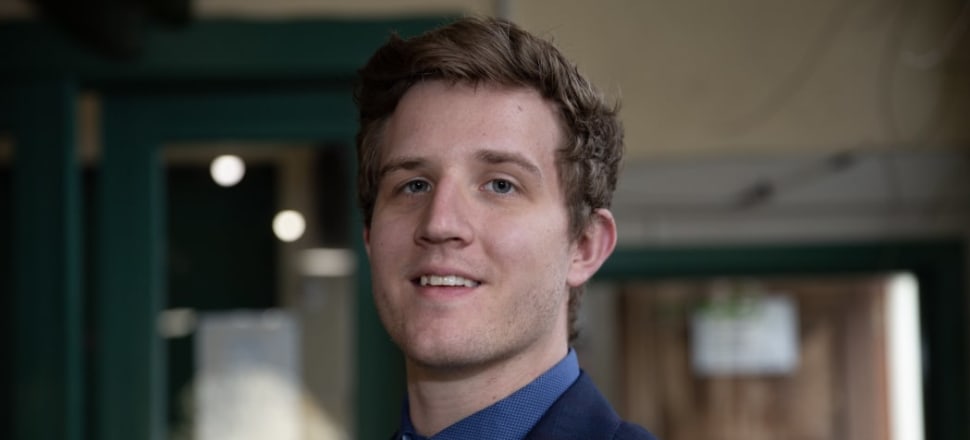
Gore's mayor and councillors are deliberately adopting a "low public profile" to reduce media attention and get back on track – part of that is scrapping a $130k independent review into the council infighting to restore public confidence
An independent review tasked with restoring confidence in Gore District Council looks certain to be axed with Mayor Ben Bell and councillors believing it’s “counterproductive” and concerned it will “reignite” past events and experiences.
The development comes on the back of the resignation of the council’s chief executive Stephen Parry, which was announced on Monday.
The reasons for shelving the review are outlined in a letter sent to the Department of Internal Affairs on August 15 following a request for a progress update on the council’s governance and performance issues.
The letter, signed by Bell, Parry and Deputy Mayor Keith Hovell (on behalf of councillors), said: “We have genuine concerns that any further re-examination of the past may reignite the very events and experiences that we seek to move on from.
“Therefore, we are collectively of the opinion that proceeding to undertake the proposed review may be counterproductive at this time.”
Despite previous recommendations, given the steps we have taken together to further develop, reflect and reset, we no longer feel the review process is in the best interest of the Gore District Council, nor local government as a whole, they said.
The letter was released Friday as part of an agenda for a council meeting on Tuesday where it is recommended it be received and noted.
Lawyer and former political journalist Linda Clark was expected to head the $130,000 independent review tasked with restoring confidence in Gore District Council.
The review was supposed to be completed by the middle of this month but the terms of reference had yet to be set.
The scope of the review included looking at reasons why trust and confidence had been adversely affected, as well as whether the induction of the mayor and elected councillors’ post-election 2022 was adequate to ensure all parties understood their roles and responsibilities and ways in which communication between the parties could be improved.
And whether any factors associated with culture, capacity and capability of the council impacted on how the parties had been able to meet their obligations under the Local Government Act and to their local community.
The letter said the council “has deliberately adopted a low public profile in recent months in a conscious effort to reduce the invasive attention of the media and enable us to focus on moving forward, particularly in relation to business-as-usual activities”.
“We are acutely aware of the need to now update and give confidence to our community and your department of our efforts to operate effectively and efficiently,” they said.
The letter also sought to reassure Internal Affairs that measures taken to improve communication between Bell and Parry were working.
The relationship between the mayor and the chief executive has been given considerable attention throughout the course of this triennium, they said.
“Issues associated with this have been traversed, and various actions agreed to between the parties that remained confidential.”
The intermediary role is “proving highly effective” in ensuring communication is kept open and councillors received a confidential report about progress on a two-monthly basis, they said.
But both Bell and Parry agreed that it was no longer required on a day-to-day basis, they said.
Issues arising between elected members have also been comprehensively reviewed with the assistance of an experienced and independent facilitator, they said.
“The details of the outcomes agreed to are confidential. However, it is important to highlight there is now improved communication between the elected members, such as the mayor providing a weekly update, that will significantly assist in moving forward as a united team.”
The letter reveals the mayor and councillors have completed five training workshops in the past three months on topics including governance role of councillors, communication, privacy issues, stress management and health and safety issues. Another workshop on the council’s code of conduct is proposed.
Simple, low-level changes to improve understanding and efficiency at meetings were being made, such as seating newly elected councillors between those with more experience, they said.
“The staff, mayor and councillors are united in their desire to move forward together, and we believe collectively all of the actions identified above provide a sound basis for unity.
“While it is early days, there is commitment and positivity in both the attitudes and actions of us all,” they said.
This can be seen in the preparation undertaken for council meetings and workshops, involving senior council staff, the mayor and councillors, and the flow and behaviours in the meetings themselves, they said.
“We understand actions speak louder than words and our future actions are the key to regaining public confidence,” they said.
Elected members will continue to seek the advice of industry experts such as Local Government NZ and Taitaura to ensure the progress they were making is not undermined, they said.







